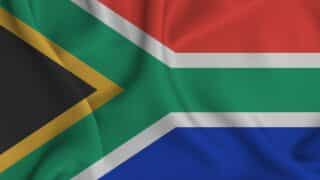Ramadan is the month in which was sent down the Qur’an, as a guide to mankind.” (Al-Qur’an, 2:185)
With these short words God introduced fasting during the month of Ramadan. Ramadan is the 9th month of the Lunar Calendar. Like other months of the lunar calendar this month was also known to pre-Islamic Arabs with the same name. There was nothing unusual about this month. Same days and same nights, sometime it was hot and sometime it was cool, because the months of the lunar calendar rotate and they are not fixed in hot or cold season as the months of the solar calendar are.
However, in the year 610 (or 611) of the Common Era at one night of this month something new happened. What happened was something unusual, extraordinary. The eternal Word of God was communicated from heaven to the earth during this month. Ever since that moment Ramadan stands out as a unique month for Muslims. It was during Ramadan that Muhammad, a noble Arab, about forty years old was all by himself in prayer and devotion inside the cave of Hira in a mountain near Makkah. The archangel Gabriel visited him and told him that God had chosen him as His Prophet. The angel gave Prophet Muhammad the first words of revelation:
Read! In the name of thy Lord who created, Created man from a clot. Read! For thy Lord is most Gracious, Who taught man the use of the pen and taught man what He knew not (96:1-5)
What followed after this for 23 years was Prophet Muhammad’s work as a prophet of God. The Qur’an continued to be revealed to the Prophet piecemeal, received at different occasions of his life and continued giving directions for him and his followers.
In many religions of the world there is something called “auspicious time”. That time is associated either with harvest or spring season, birth of a hero, saint or savior or a historical or trans-historical event that is important to that particular religious tradition. Ramadan, for the Muslim community, is an auspicious time. It is a time that makes all time valuable.
It is a time that is associated with the revelation of God.
Prophet Muhammad -peace be upon him- was fasting when the first revelation came to him. Fasting awakens the heart, enlightens the spirit, and prepares the mind and soul to receive the Word of God. When the mirror of the soul shines then the Word of God descends into it like a beautiful reflection. Islamic fasting is a means and a method of purification, self-discipline and self-mastery. In fasting one abstains from food, drink and sex from dawn to dusk. The body is denied these basic urges during the day. At the end of the day in the evening one satisfies oneself in moderation, but then one abstains again next morning. Thus a whole training period of abstention and satisfaction for a whole month trains a person in self-control and self-mastery. One learns how and when to say ‘yes’ and when to say ‘no’. This is a lesson that one must learn to live in this world of good and evil, opportunities, challenges and temptations. One must have discipline in order to live by the Word of God.
Fasting also teaches us to appreciate God’s gift of food and drink. Eating and drinking are simple mundane activities. We take them far granted. But food is the gift of God and it is also His gift that we are able to eat and enjoy our food. We must show our gratitude to him and we must use our resources in moderation, with care and responsibility. There are many who are poor and in need. By fasting we learn what it means to be hungry. It generates the spirit of giving, charity and kindness. Ramadan is a time of charity and generosity.
It is ironic that we human beings sometime learn by contrast. By controlling our appetite and hunger we learn how to appreciate the gift of food and drink. By abstaining we learn how to give to others.
Like their brothers and sisters in faith around the world, Muslims in America also fast and pray during Ramadan. We are pleased that many of our neighbors and co-workers are now aware of this tradition and want to learn more about it/
By Dr. Muzammil H. Siddiqi

















